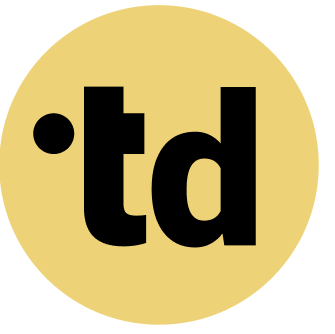Key Takeaways
Treat AI agents like new employees, giving them a structured onboarding with a human buddy to ensure smooth integration into hybrid teams.
Successful AI agent onboarding for hybrid teams hinges on redefining roles and responsibilities with absolute clarity to prevent confusion and boost productivity.
A scalable framework for AI integration, supported by a center of excellence and continuous learning, is essential for long-term organizational success.
Your hybrid team is already navigating a complex world, with 41 percent of employees splitting time between home and the office. Now, a new teammate is arriving: an AI agent. The AI agent onboarding for hybrid teams presents a unique challenge, but it's also your team's call to adventure. This isn't about just adding another tool; it's about fundamentally rethinking your organizational development. With the right strategy, Team Architects can guide their heroes-their teams-from a state of overload to a new era of clarity and high performance, turning potential chaos into a competitive advantage.
Practical Framework for Team Architects
As a Team Architect, you can apply these principles to your organization:
- Map Current State: Document existing roles and responsibilities using a tool like teamdecoder.
- Identify Gaps: Where are roles unclear? Where do humans and AI agents overlap?
- Define Clear Boundaries: Specify which tasks are handled by humans vs. AI agents.
- Create Accountability: Assign clear decision rights for each role.
- Iterate and Improve: Continuously refine based on team feedback.
Note: In this article, "hybrid teams" refers to teams composed of both human team members and AI agents working together, not remote/office work arrangements.
The Great Gig in the Sky: Navigating Hybrid Team Overload
Hybrid teams (humans + AI agents) introduces complexities that can leave teams unclear AI agent roles and uncertain. Nearly the vast majority of new employees expect a clear introduction to company values, a task made harder without consistent face-to-face interaction. This ambiguity leads to role confusion, with teams spending up to 40 percent more time on administrative tasks instead of high-value work. The lack of informal learning opportunities can leave new hires, both human and AI, struggling to integrate into the company culture. This initial friction sets the stage for a much larger challenge in transformation.
For Team Architects, the mission is to create clarity from this complexity. In Germany, while over 60 percent of employees use AI, much of it is informal, happening outside of official company strategy. This shadow adoption highlights an urgent need for structured human-AI workflow design. Without a clear framework, you risk creating more silos and deepening the very overload you aim to solve. The next step is to build a bridge from this chaotic present to a more integrated future.
We Can Work It Out: Introducing AI Agents as Teammates
Integrating an AI agent is not just a technical update; it's a significant exercise in change management. In Europe, the vast majority of leaders expect generative AI to boost productivity, but these gains are only possible with thoughtful implementation. The key is to treat the AI as a new team member that requires formal onboarding, just like any human colleague. This approach demystifies the technology and fosters a collaborative, human-in-the-loop environment from day one. It's a critical step in building new team structures.
A successful AI agent onboarding for hybrid teams starts with defining its purpose and role with absolute clarity. This process reduces the many AI adoption hesitation that stems from a lack of knowledge. Using a platform like teamdecoder allows you to map the AI's responsibilities, define its interaction protocols, and show exactly how it supports its human counterparts. You can try for free and see how visualizing these new roles brings immediate order. This structured approach transforms abstract technology into a tangible, valuable teammate, paving the way for a smoother integration process.
A Playbook for a Smooth AI Onboarding
Architect Insight: A structured onboarding process turns anxiety into acceptance and ensures your AI integration delivers value from the start. In Germany, some companies now use AI, a number that is rapidly growing and demands a repeatable strategy. A clear plan for employee enablement with AI is no longer optional. Here is a five-step playbook for Team Architects:
- Define the 'Why' and the 'What': Clearly articulate the AI agent's purpose and the specific problems it solves. Communicate this vision to the entire team to build buy-in from the first day.
- Assign a Human Buddy: Pair the AI agent with a specific team member who is responsible for its initial training, feedback, and performance monitoring. This creates accountability and a direct line for troubleshooting.
- Host a Team Kick-off: Organize a AI-assisted meeting to introduce the new AI teammate. Demonstrate its capabilities, explain its role, and answer the team's questions to address concerns transparently.
- Create a Living Playbook: Use a central tool to document the AI's roles and responsibilities, workflows, and communication protocols. This ensures Many people understands how to interact with the agent effectively.
- Schedule Regular Check-ins: Plan weekly or bi-weekly reviews during the first 90 days to discuss what's working, identify friction points, and refine workflows based on team feedback.
This methodical approach provides the governance needed to manage new hybrid team dynamics effectively.
A Kind of Magic: The Measurable Impact of Human-AI Teams
Once onboarded, AI agents deliver tangible results that reshape team dynamics and performance. Teams that effectively integrate AI agents are 72 percent more likely to report feeling 'very productive' at their jobs. This is not just a feeling; it translates into measurable outputs, as AI automates routine processes and frees up human talent for strategic work. This is a core benefit of successful strategy operationalization.
The data shows a clear return on investment for well-managed AI integration. Organizations can see a productivity increase of over a portion of by leveraging AI for tasks like data analysis and workflow automation. For hybrid teams, this means faster decision-making and fewer communication bottlenecks. By using tools that clarify roles, you can better track these improvements and ensure your hybrid team empowerment initiatives are hitting their marks. These early wins build the momentum needed for broader organizational transformation.
Under Pressure: Redefining Roles and Responsibilities
Deep Dive: The arrival of an AI agent necessitates a redesign of existing team roles. By 2030, many new jobs in Europe will be enabled by AI, making role clarity a critical component of future-proofing your workforce. Team Architects must lead this charge, moving beyond old job descriptions to create dynamic, collaborative workflows. This is a fundamental aspect of modern organizational development.
Our Playful Tip: Think of it like casting a movie-every actor, human or AI, needs to know their part. A successful human-AI team structure requires clearly defined responsibilities. Consider these key areas for role definition:
- Decision Rights: Who makes the final call? Define which decisions are AI-assisted and which are human-led.
- Communication Protocols: How does the team interact with the AI? Establish clear channels, whether through Slack, a dashboard, or another platform.
- Data Stewardship: Who is responsible for the quality of the data the AI uses? Assign a clear owner to maintain data integrity.
- Performance Metrics: How is the AI's contribution measured? Define specific KPIs that align with team and business goals.
- Escalation Paths: What happens when the AI makes a mistake? Create a clear process for flagging errors and providing corrective feedback.
This level of detail in your hybrid team facilitation ensures that Many people, human and machine, works in concert.
Come Together: Scaling AI Integration for Long-Term Success
A successful first onboarding is just the beginning; the real goal is creating a scalable framework for continuous AI integration. As your organization grows, so will its use of AI, with a portion of companies already redesigning workflows to accommodate the technology. Establishing a center of excellence or a dedicated task force management team can provide the governance needed to manage this expansion effectively. This team ensures consistency, shares effective methods, and oversees the ethical implications of AI use.
Long-term success depends on building a culture of adaptation and learning. In Europe, many workers expect their jobs to be partially automated, highlighting the need for reskilling initiatives. Provide resources like the free online course "Workforce Transformation" to empower your employees. Effective hybrid stakeholder communication is key to ensuring Many people feels part of the journey. By investing in both technology and people, you build a resilient organization ready for the future of work. See our pricing.
Try teamdecoder for free - shape your team and make change feel like play! #TeamArchitecture #HybridTeam #AIIntegration #FutureOfWork
More Links
BAuA (Bundesanstalt für Arbeitsschutz und Arbeitsmedizin) focuses on the impact of Artificial Intelligence on leadership and HR management in the context of digitization at work.
Denkfabrik BMAS (Bundesministerium für Arbeit und Soziales) presents technology scenarios and impacts of generative AI on work until 2030.
Destatis (Federal Statistical Office of Germany) provides a press release from the Federal Statistical Office of Germany.
acatech (National Academy of Science and Engineering) deals with human-centered AI in the working world.
Fraunhofer IAO describes AI studios and experience workshops for the participatory design of company AI applications.
Bitkom Research presents the status quo of AI in Germany.
Boston Consulting Group (BCG) provides a study indicating that two-thirds of Germans use AI in the workplace.
Deloitte offers a study on Artificial Intelligence.
FAQ
Why is a formal onboarding process important for an AI agent?
A formal onboarding process demystifies the AI, sets clear expectations for its role, and integrates it into team workflows smoothly. It prevents the AI from being treated as a separate, confusing tool and instead fosters a collaborative environment, which is crucial for adoption and realizing productivity gains.
How can we prepare our team for the arrival of an AI agent?
Prepare your team by communicating the 'why' behind the AI integration, focusing on how it will help them and the business. Provide training on how to interact with the AI, address any concerns about job security transparently, and involve them in defining the new workflows.
What is a 'human-in-the-loop' approach?
A human-in-the-loop approach means that humans remain central to the work process, overseeing, guiding, and validating the work of AI agents. The AI handles data processing and automation, but humans make the final strategic decisions, manage exceptions, and provide feedback to improve the AI's performance over time.
Can teamdecoder help with creating DEI or sustainability templates?
Yes, teamdecoder is designed to help Team Architects structure any kind of team or task force. You can use it to build and manage teams focused on specific initiatives, including creating a DEI template or a sustainability template by clearly defining roles, responsibilities, and goals for each team member.
How long should the AI onboarding process take?
The initial, intensive phase of AI onboarding should last around 90 days, similar to a human employee's probation period. This includes regular check-ins, performance reviews, and workflow adjustments. However, learning and optimization should be an ongoing process.
Where can I find resources for managing workforce transformation?
We offer several resources to help. You can start with our free online course on "Workforce Transformation" to learn foundational concepts. For personalized guidance, you can also book a free personal consultation with one of our experts to discuss your specific challenges.





